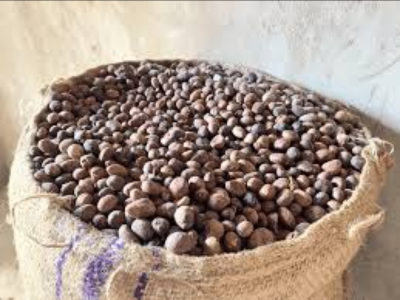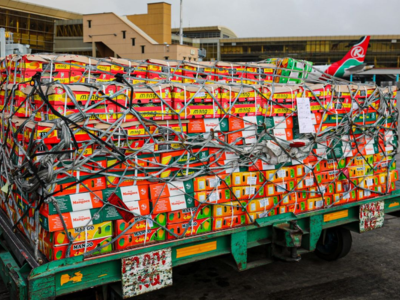Shea Nut Prices Plunge 30% Under Nigeria's Export Ban, Sparking Value Chain Woes
- by Admin.
- Sep 14, 2025

Credit:
A six-month ban on raw shea nut exports, imposed by the Nigerian government last month, has driven down prices by more than 30 percent, disrupting livelihoods for farmers and traders while raising questions about the balance between industrial goals and immediate economic fallout.
The policy, announced on August 26, 2025, by President Bola Tinubu, aims to shift Nigeria from exporting unprocessed shea nuts to value-added products like butter and oil, capturing a larger slice of the $6.5 billion global market. As the world's top producer, contributing about 40 percent of supply – roughly 350,000 tons annually – Nigeria currently earns less than 1 percent of that trade value due to limited local processing. Vice President Kashim Shettima described the move as a step toward industrialization, rural development, and empowering women, who dominate the shea sector and rely on it for income in northern and central states like Niger, Kogi, and Jigawa.
Yet the abrupt rollout has triggered sharp market reactions. The Centre for the Promotion of Private Enterprise (CPPE), a leading economic think tank, reported in a September 14 policy brief that shea nut prices have tumbled over 30 percent since the ban took effect, eroding earnings for smallholder farmers and aggregators who collect the nuts from wild trees. Suppliers in Niger and Kogi states have voiced frustration over the sudden drop, with stockpiles building up and no clear outlets for sales. Exporters, meanwhile, face mounting risks: many hold international contracts that could lead to defaults, potential lawsuits, and damage to Nigeria's reputation in global trade. Logistics firms and financiers are also hit, as loans for procurement go unpaid, threatening thousands of jobs across the chain.
CPPE Director Muda Yusuf acknowledged the ban's long-term intent to foster domestic processing but criticized its immediate enforcement for lacking stakeholder input and transition planning. "Abrupt policy shifts send negative signals to investors," Yusuf wrote, noting that non-oil exports – which topped $3 billion in the first quarter of 2025 – could suffer if confidence erodes. The group called for exemptions on existing contracts, clear timelines to phase out raw exports, and investments in infrastructure like power and logistics to make local processors competitive without subsidizing them at farmers' expense.
On the processing side, some see opportunity. The Raw Materials Research and Development Council (RMRDC) plans to map shea trees across 19 northern states, plus Oyo and Kwara, to better quantify production and support the value chain. Experts like Dr. Ahmed Ismail from the Federal University of Minna point out that while farmers often sell cheaply to middlemen due to poor regulation, refined products like shea butter fetch far higher prices – up to $3.5 million per ton versus $800,000 to $900,000 for raw nuts. Agriculture Minister Abubakar Kyari echoed this, urging the ban to curb informal trade and secure raw materials for factories.
Still, the human toll is evident. In villages where shea collection sustains families, the price crash has squeezed already tight budgets, especially amid broader economic strains like inflation. Advocacy groups stress the need for safeguards to ensure farmers aren't left bearing the costs of industrialization. As the ban runs through February 2026, ongoing consultations could refine its path, but for now, it underscores the tightrope between policy ambition and on-the-ground realities in Nigeria's push for economic diversification.













0 Comment(s)